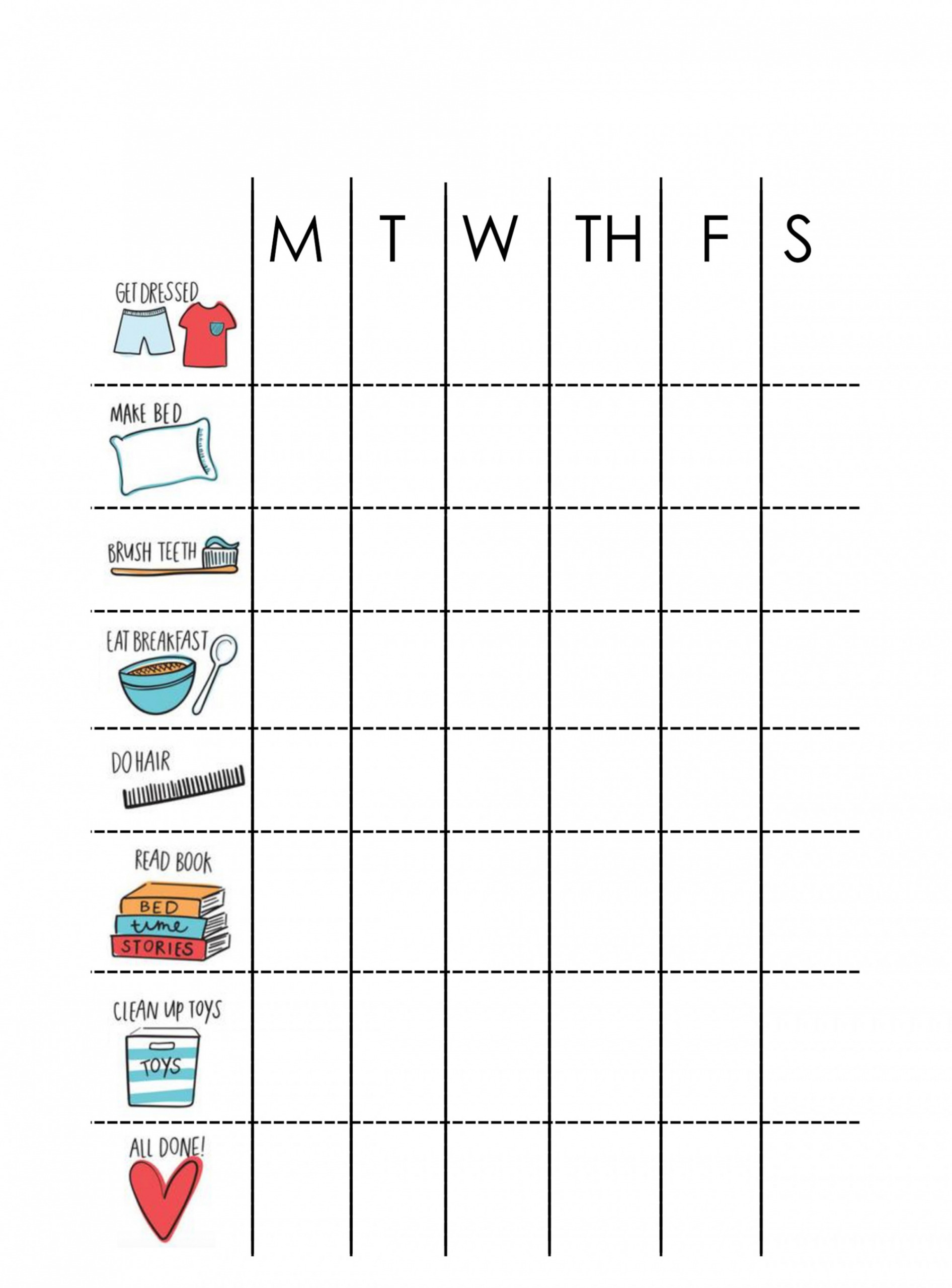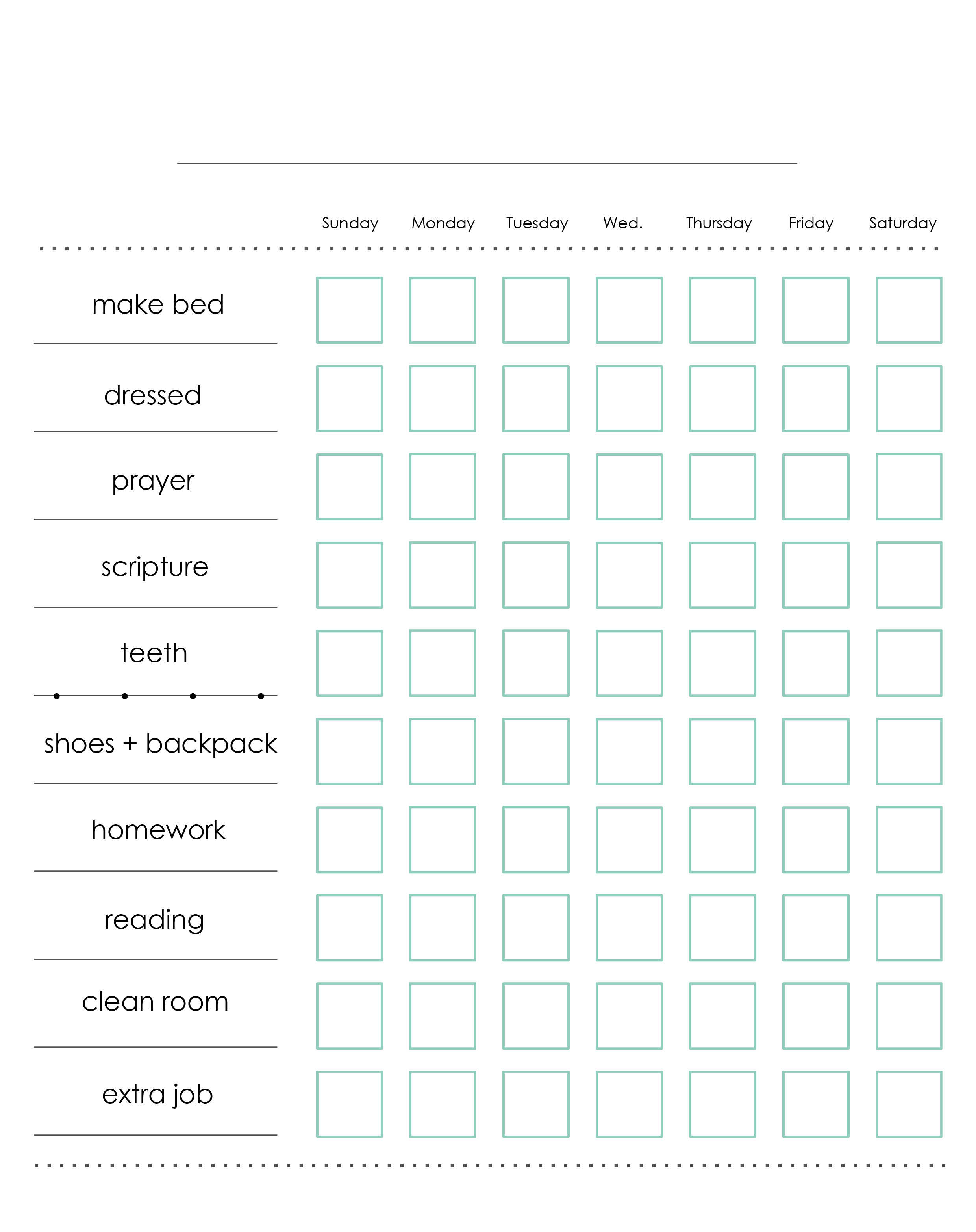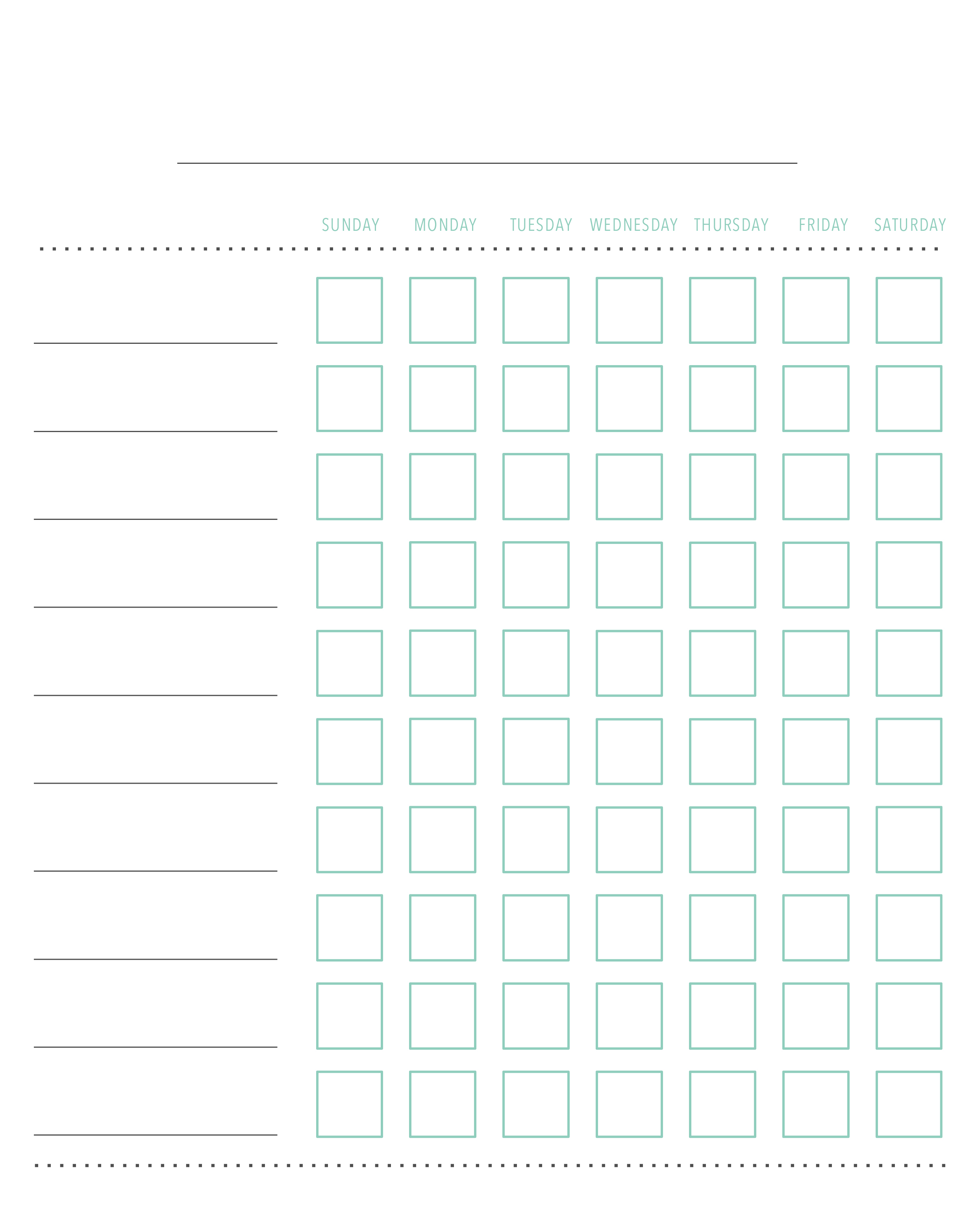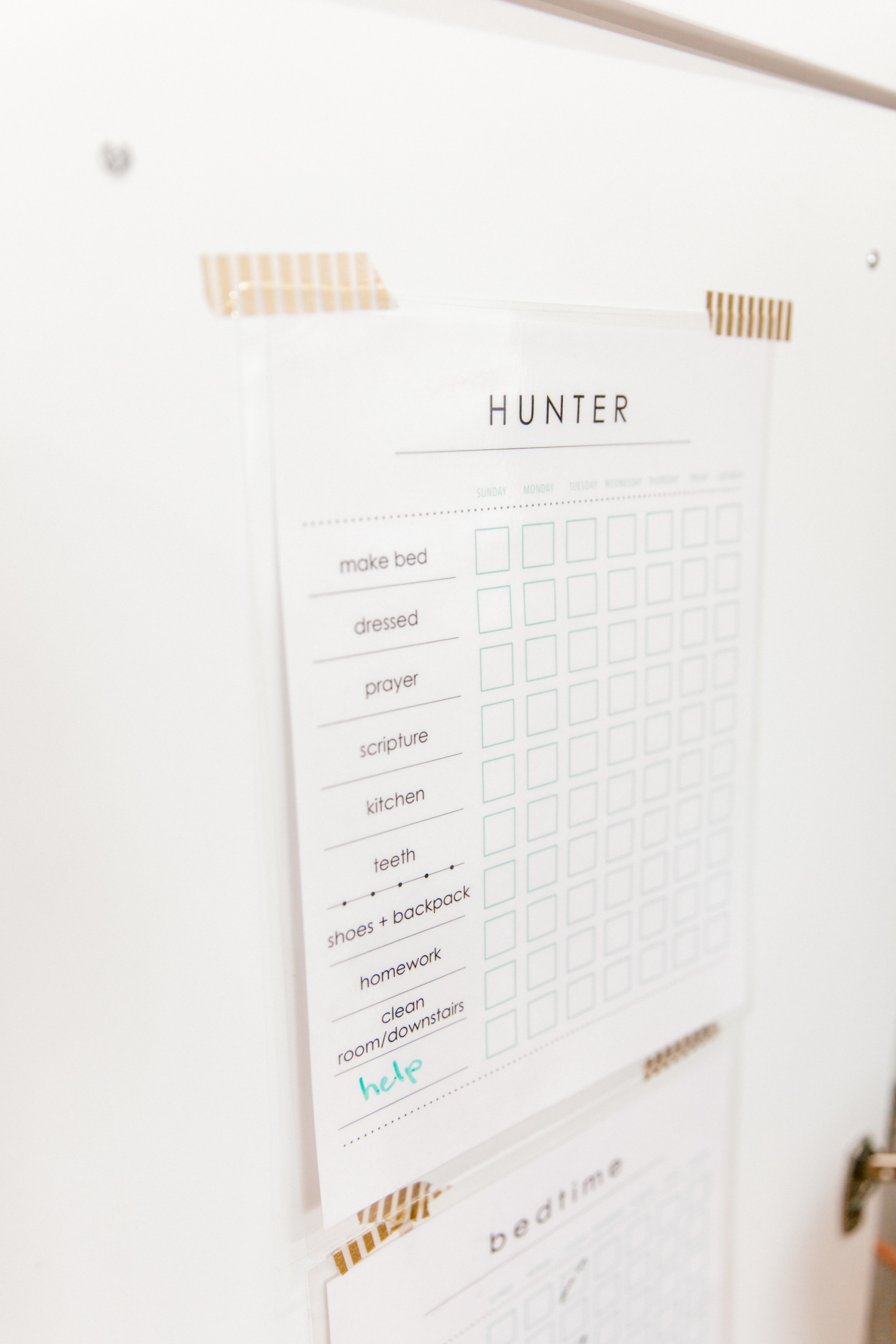What do chores look like at your house? Is there a lot of complaining? Do you pay allowance? Or are you still trying to figure out a system? With summer break upon us, this is a perfect time to figure out a routine that works for you and your people!
For us, having 5 little people and keeping things clean + organized can be a challenge. For Joe + I, we wanted chores to be more than just pitching in to keep the house clean. We wanted it to be a way to teach our little people more about responsibility at the same time. We tried and tried to find something that would work and just fell short Until my good friend Ralphie over at Simply on Purpose talked about her “family economy”. You guys, my mind was blown! It was almost exactly what we were looking for for our family! We’ve made a few tweaks and customizations to fit our needs, but we have loved how it works. So I thought I’d share in case it benefits anyone else

my similar top + similar jeans + hat + bracelets
white bedding + pink blanket + art
:: WHAT IS THE FAMILY ECONOMY?
Our Family Economy is basically a deeper focus on your everyday chore chart. It takes your typical “do your chores to get an allowance”, and teaches the deeper meaning. It teaches your kids how to save, how much things cost, and how to budget while showing them that the effort they put in equals the reward.
:: WHY DID YOU CHOOSE THIS WAY OF DOING CHORES/ALLOWANCE?
For me, the number one purpose was to help + encourage me to be more of a “yes” mom. Constantly nagging my little people to do a set list of chores was getting old. I didn’t want to be the source of all the “no’s” and “cant’s”. We wanted them to grow up knowing that getting the things you want takes hard work + effort and it isn’t just a free handout. The family economy has been a great way to explain these simple things + encourage them to set and achieve goals.

:: HOW DOES IT WORK?
The first thing we did was customize our chore charts. This can be tricky for some people to come up with a good layout so I included a downloadable version below! Our little people each have chores they do every day to earn money. For us these daily things include things like making your bed, doing your homework/reading, hanging up your backpack + washing your hands after school, reading scriptures + saying prayers. As you can see, for the most part these are more things they would do already. For the bigger Saturday chores, we have taught them that pitching in is part of living in the house, and not something they are paid for.
As they do their chores, they have to get their charts signed off. If the job isn’t signed off, they don’t get paid. Based on their age, they have a weekly allowance amount. If they complete all of their chores, they get the full amount. If there is a day they don’t feel like doing their chores, that is fine. For that day, they will not be paid. We have had a few days like that, but they quickly realize they’d rather do it and earn more money. We also have weeks where we will offer bigger chores or babysitting for additional money.

:: HOW DOES PAYMENT WORK?
This is where things change from what most people know as chores + allowance. Instead of paying our little people in cash, they each have a checkbook ledger. At the end of the week, we look over their charts and figure out how much they have earned. We write that amount on their check ledger. When we are out at the store and they see a toy they want to buy, or a treat they’ve gotta have, we pull out their ledger. If they choose to get it, we just subtract that amount from their total. I love not having cash floating around the house, or the excuse of “losing it” their allowance money.
Now don’t get me wrong, we haven’t fully turned into buy-everything-yourself mode. We still have family date nights for treats and things. But if we are just running errands and they feel like a bonus treat, they know its up to them if they want to spend their money on it. It has been amazing to see them be able to process if things are really worth their money .
Saving is also a big part of the family economy concept that we haven’t completely visited yet. My little people are still young and in the spending mode, but we are going to start pushing saving soon. The way Simply on Purpose recommends for saving money is to agree to double whatever is in their savings when they turn 16. Having a benefit, similar to an interest rate at a bank, makes saving money more appealing.
Most important in all of this is to do what works for you and your family. Comparison isn’t going to get you anywhere and one way of doing things doesn’t work for everyone. This is totally customizable and will take some trial and error, so work it out for you! If you try it let me now what you think! Our chore charts are available for download below!!

photos : aubrey taiese
:: CHORE CHARTS ::
Just hold down on the image + save to your phone OR right click (if your on a computer)to print off and save to your desktop! TIP: you can add your child’s name to the top any chart






This is so helpful, thank you! My kiddos have been asking and i just need to wrap my head arlund it and set it up. Ypu mentioned that payment is based on their age. Can you provide a little more detail? I don’t want to give away the world for simple chores, but i want to have it be of value to them.
Thank you! We recently instituted a family meeting and incorporate chore discussion there, from your ideas! Can you please show an example of how the checkbook ledger works?